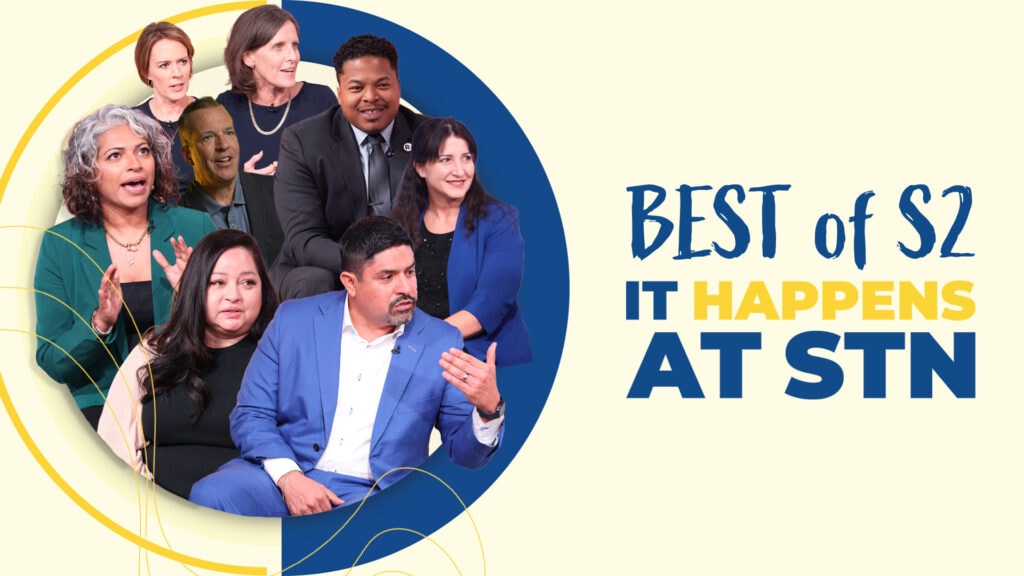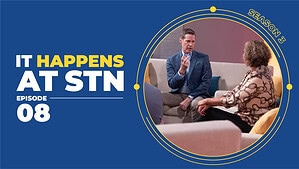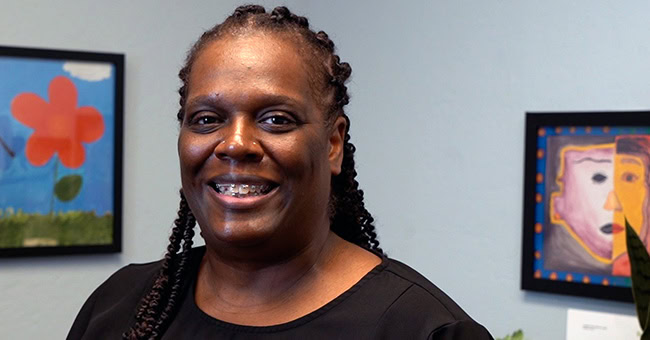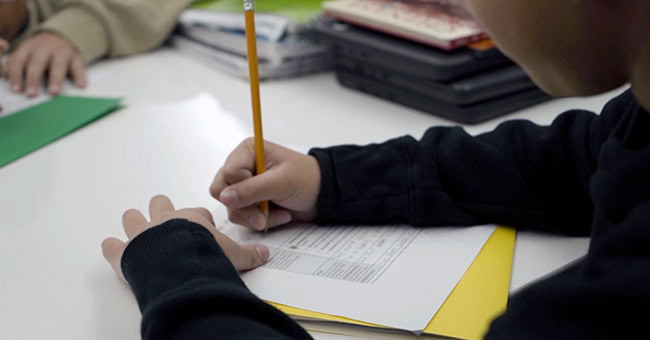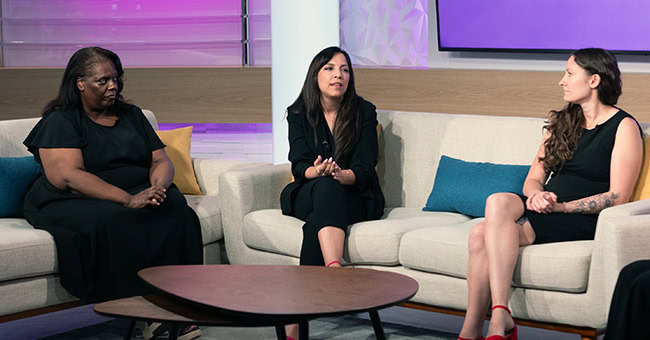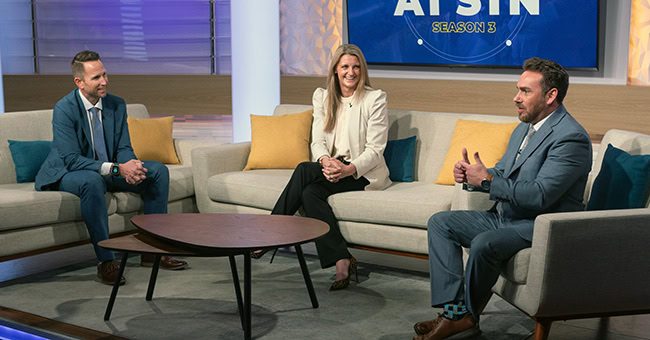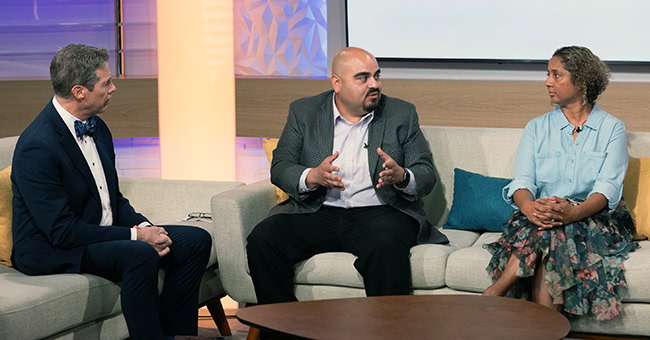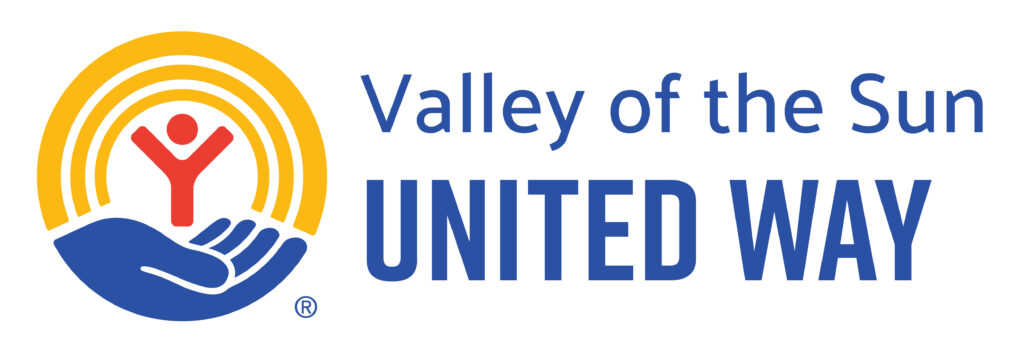PHOENIX, Ariz. (STN) – STN launched the second season of the new series ‘It Happens at STN’ with a variety of new collaborative partners including Bank of America, USAA and St. Vincent DePaul.
The first half of season two saw various community leaders and hundreds of audience members come through the STN studios in downtown Phoenix to hear leaders from all sectors of the Valley business community discuss the most pressing topics affecting the Phoenix area.
Here are the top five moments from season 2 of ‘It Happens at STN.’
USAA launches new initiative to confront alarming rates of veteran suicides – Episode 3
On August 30, 2021, the United States military officially ended the country’s decades-long war in the Middle East. In the years since the war began, four times as many veterans have died by suicide than have been killed in combat. Unfortunately, this staggering statistic is still on the rise.
USAA, along with the Humana Foundation and Reach Resilience, launched a grassroots initiative called ‘Face the Fight’ to combat the epidemic of veterans dying by suicide to cut the rate in half by 2030. The program started with 50 organizations and has quickly grown to 90.
Watch the full panel discussion below.
“We’re tapping into the partners who maybe haven’t worked collectively together,’ explained Patrick Fitzhugh, regional site director for USAA. ‘We’re carrying the flag forward for a lot of really great organizations to make an impact for the first time with a really aggressive moonshot goal.”
Fitzhugh, along with Kelly Nastos, executive director for USO Arizona, and Sam Neuhauser, West Region Manager for the Travis Manion Foundation, were part of a special Veterans suicide prevention and awareness panel discussion on the November episode of ‘It Happens at STN.
The panel discussion guests all agreed that the perception of veterans, the resources available to them, and the language used about what they are going through need to continue to evolve if organizations like USAA are going to address the crisis of veteran suicides successfully.
“They all have different experiences, and everyone interprets trauma in different events differently,” Nastos said.
Navigating DEI burnout – Episode 2
Co-producers of Community Collaborative, Monica Villalobos, CEO of the Arizona Hispanic Chamber, and Robin Reed, CEO of the Black Chamber of Arizona, lead a crucial discussion on companies navigating Diversity, Equity, and Inclusion (DEI) within their organizations and emphasize why DEI should be a foundation for every company.
“Companies are either approaching DEI alphabetically or incidentally,” says Reed. “What we’re seeing now is the incidental side of it. There’s no incident in the news relative to people of color or members of the LGBTQAI+ community. For that reason, companies feel they can take a step back, and they won’t be noticed.”
Watch the full segment on DEI burnout below.
Reed and Villalobos believe the key to integrating DEI into the fabric of every organization’s culture is a commitment to consistency. Villalobos emphasizes that companies need to persist in their DEI efforts despite internal and external pushback.
“Look at other ways to integrate DEI into the entire company, not just that one silo or that one task force or that one month like Hispanic heritage, but truly integrate it into the fabric of the company,” Villalobos explained during the discussion.
“This [DEI] is an ongoing thing, much the same way that you create a financial strategy for a company where you don’t stop the strategy the day your books are balanced,” says Reed. “You keep doing it. It becomes part of how the company operates. The same principle applies to DEI initiatives.”
Using bridge housing programs to help end chronic homelessness – Episode 3
In the ongoing battle against chronic homelessness, the Human Services Campus (HSC) prioritizes its efforts on a bridge housing program to facilitate a smoother transition from homelessness to permanent housing.
Unlike temporary housing, which provides only a brief respite, HSC’s program focuses on delivering stability and essential services that may be unavailable elsewhere. Anthony Holt, the Bridge Housing Manager at HSC, explained, ‘We have clients who may need additional time to obtain their vouchers or documents. When they come here, we provide the breathing room they need, allowing them to eat and work.’
Read the feature story on HSC’s bridge housing program here.
Holt, accompanied by other representatives from HSC and two bridge housing clients, granted STN cameras an exclusive inside look at HSC’s Bridge Housing program, operating three facilities in the Phoenix Metro area. The primary goal at the bridge housing campuses is to help their most vulnerable clients quickly transition out of homelessness. The staff at the bridge housing locations offer a stable experience to aid community members in securing permanent housing.
“It slows you down; it reduces your stress,’ explained Albert, a bridge housing client. “They provide food. You can come down here and have breakfast, lunch, and dinner. It gives you time to slow down and look for a job that you know you’re going to keep, not just the first job you take, and then end up back in the same situation. It gives you options.”
In addition to providing shelter, meals, and time, the program empowers clients with practical training in essential life skills crucial for progressing toward permanent housing.
Rob Podlogar’s journey to serving others – Episode 4
Rob Podlogar grew up in the suburbs of Cleveland, Ohio during the 1970s, realizing his identity as gay at an early age and facing the challenges of a time when openly expressing one’s sexuality was not widely accepted.
During college, Podlogar struggled to navigate the complexities of how being a gay man would affect his relationships with those close to him.
“In college, I attempted suicide,” said Podlogar. “The internal struggles I was dealing with became overwhelming, and I did not think I could cope with how my identity would be perceived externally.”
Read Rob Podlogar’s Leader Profile interview here.
Fortunately, Podlogar found solace in a new chosen family, connecting with others who shared similar experiences, and he was finally able to live authentically, he explained in an interview with STN last year.
After spending over two decades in the banking industry post-college, Podlogar transitioned into the nonprofit sector. Drawing from his struggles as a gay man, he sought ways to assist others facing diverse challenges. This year, Podlogar took on a new role as the CEO at Candelen, an organization dedicated to early childhood development for ages 0 to 5.
St. Vincent DePaul and STN bring Dan Pallotta’s ‘UnCharitable’ premiere to the Valley – Episode 2
In October, St. Vincent DePaul and STN co-hosted a panel discussion on the economics of nonprofits and their utilization of funds to operate and create programs supporting their causes. The conversation was complementary to the premiere of the Dan Pallotta documentary titled ‘UnCharitable,’ which delves into the business aspects of nonprofits. The documentary challenges the decades-old idea that nonprofits should not be able to operate and spend their capital in the same way that for-profit businesses do.
Read a full recap of the STN and St. Vincent DePaul premiere of ‘UnCharitable’ here.
Joining the conversation for the October episode of ‘It Happens at STN’ were St. Vincent DePaul CEO Shannon Clancy, UMOM COO Monique Lopez, and Sheldon Caldwell-Meeks from Cox Business. Together, the group dismantled some of the incorrect stigmas they face while operating a business in the nonprofit sector.
“In order for nonprofit programs to be successful and innovative, we have to invest in departments like people operations that recruit top talent in data and evaluation. This helps put measures in place to better understand success so that an agency can do more of what works and less of what doesn’t,” Lopez said. “As nonprofit leaders, we need to be ready to receive the community’s generosity by making those investments and getting permission and encouragement to invest in the overhead side of the work that we do.”
Watch the full panel discussion below.
Episode 5 of ‘It Happens at STN’ season two airs in February.


